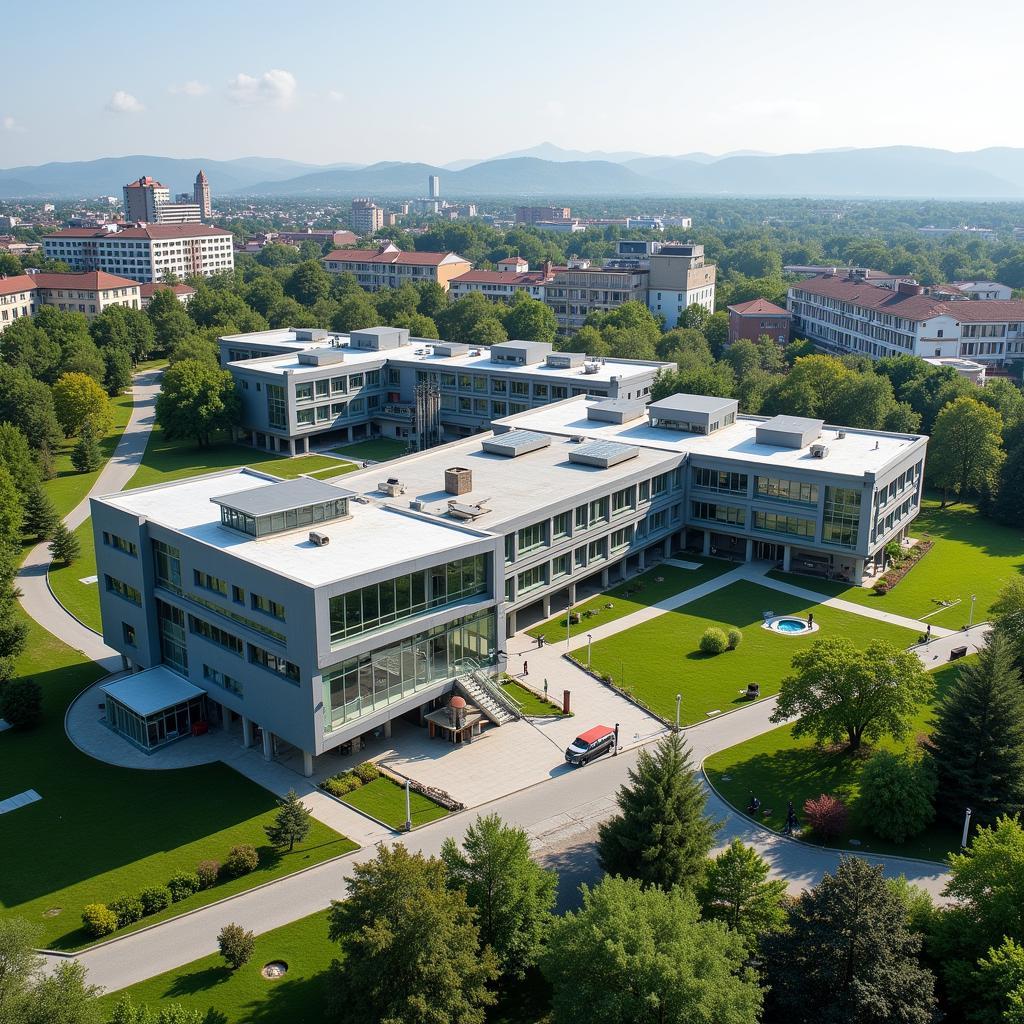The ASEAN Advisory Council plays a pivotal role in shaping the future of Southeast Asia. This comprehensive guide will explore its functions, significance, and impact on the region’s growth.
The Importance of Consultation in ASEAN
ASEAN, the Association of Southeast Asian Nations, thrives on collaboration and consensus. Recognizing the need for diverse perspectives, ASEAN established advisory bodies to provide insights and recommendations on critical issues. These councils, comprising experts and stakeholders, contribute significantly to the ASEAN Community building process.
What is the ASEAN Advisory Council?
While the term “ASEAN Advisory Council” might sound general, it’s essential to differentiate between specific councils. ASEAN has established various advisory bodies, each with a distinct focus. For instance, the ASEAN Business Advisory Council (ASEAN-BAC) focuses on private sector development, while others concentrate on areas like education, culture, or science and technology.
Key Functions of ASEAN Advisory Councils
While each council’s specific responsibilities vary, they generally share the following functions:
- Providing Expert Advice: Councils offer specialized knowledge and insights to ASEAN leaders and decision-making bodies.
- Facilitating Dialogue: They serve as platforms for stakeholders, including government agencies, the private sector, and civil society, to engage in constructive discussions.
- Conducting Research and Analysis: Councils often undertake studies and assessments to inform policy recommendations.
- Monitoring and Evaluation: Some councils play a role in monitoring the implementation of ASEAN agreements and initiatives.
The Impact of ASEAN Advisory Councils
The work of these councils has contributed significantly to ASEAN’s progress in various areas.
- Economic Integration: The ASEAN Business Advisory Council, for example, has been instrumental in promoting trade and investment liberalization within the region.
- Social Development: Councils focusing on areas like education and health have helped advance human development indicators across ASEAN member states.
- Political Security Cooperation: Advisory bodies dealing with transnational crime and disaster management have strengthened ASEAN’s capacity to address regional security challenges.
Case Study: The ASEAN Business Advisory Council (ASEAN-BAC)
Established in 2001, ASEAN-BAC exemplifies the impactful role of advisory councils. It comprises business leaders appointed by each ASEAN member state.
- Key Focus Areas: ASEAN-BAC focuses on facilitating trade, promoting ASEAN as an attractive investment destination, and advocating for policies that foster a conducive business environment.
- Notable Achievements: The council played a crucial role in developing the ASEAN Economic Community (AEC) Blueprint 2025, a roadmap for economic integration. It also actively promotes small and medium-sized enterprises (SMEs), which form the backbone of many Southeast Asian economies.
You can find more information about ASEAN-BAC and its initiatives on the ASEAN Business Advisory Council page.
Navigating the Landscape of ASEAN Advisory Councils
Given the numerous advisory bodies within ASEAN, understanding their specific areas of focus can be helpful for researchers, businesses, and individuals seeking to engage with the ASEAN process.
- Researching Specific Councils: Information on specific councils, their mandates, members, and recent activities can often be found on the official ASEAN website or through dedicated online resources.
- Accessing Meeting Reports and Publications: Many councils produce reports, policy briefs, and other publications that offer valuable insights into their work and recommendations.
Conclusion: A Collaborative Future for ASEAN
The ASEAN Advisory Councils embody the spirit of collaboration and consultation that lies at the heart of ASEAN. By leveraging expertise from diverse sectors, these councils contribute significantly to shaping a more prosperous, stable, and integrated Southeast Asia. As ASEAN continues to evolve, the role of these advisory bodies will only become more crucial in navigating the complexities of regional development and cooperation.
Frequently Asked Questions
-
How are members of ASEAN Advisory Councils selected?
- Selection processes vary, but typically involve nominations by member states and appointments based on expertise and experience.
-
Are ASEAN Advisory Councils open to participation from non-ASEAN entities?
- While the composition of councils primarily involves ASEAN stakeholders, some engage with dialogue partners and international organizations.
-
How can I find information about the activities and recommendations of a specific ASEAN Advisory Council?
- Information is often available on the official ASEAN website, council-specific websites, or through online searches.
-
What is the relationship between ASEAN Advisory Councils and ASEAN sectoral bodies?
- Councils typically work in coordination with relevant sectoral bodies within the ASEAN framework to ensure alignment and synergy.
-
How can I contribute to the work of an ASEAN Advisory Council?
- Opportunities for engagement vary, but staying informed, participating in public consultations, and supporting council initiatives are some avenues.
For those interested in the ASEAN Business Advisory Council, you can also find the ASEAN Business Advisory Council Philippines address on our website. This page provides contact details for those seeking further information or engagement opportunities.
If you’re interested in learning about other important aspects of ASEAN, you can find a wealth of information on our website. For instance, the ASE appointment page delves into the appointment process within the ASEAN Secretariat, while the ASEAN agreement on customs page provides detailed insights into the region’s efforts to harmonize customs procedures.
For global perspectives and collaborations, you can visit the ASE global contact page. This page serves as a hub for connecting with ASEAN entities and exploring opportunities for international partnership.
Remember, understanding the ASEAN Advisory Council is key to understanding how ASEAN functions and achieves its goals. We encourage you to explore the provided links and continue your journey of discovery into the dynamic world of ASEAN cooperation.
Need support? Contact us at:
Phone Number: 0369020373
Email: [email protected]
Address: Thon Ngoc Lien, Hiep Hoa, Bac Giang, Vietnam
We have a dedicated customer support team available 24/7.


